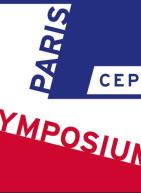Due to the COVID-19 situation, there is uncertainty surrounding travel restrictions and holding face-to-face events safely in October. Therefore, the organisers have decided to postpone the Third BoE, CEPR, Imperial, LSE Second Conference on Non-bank Financial Sector and Financial Stability.
We will confirm the new conference dates in due course. We may reopen the call for papers at a later date and you will be able to submit new papers.
Non-bank financial intermediation comprises almost half of the global financial sector. Since the crisis, UK private non-financial corporations have also substituted funding from banks for tradable securities. Alongside these changes, the share of electronic trading in financial markets has increased substantially over the last decades. Pension funds and insurance companies have broadened their asset portfolios in ways that provide finance which is an alternative to bank funding.
As a result the resilience of the non-bank financial sector and the evolving market infrastructure is crucial for the financial system to play its crucial role of providing funding to the real economy. Their resilience will also ensure that the financial system overall absorbs, rather than amplifies, stresses.
In order to assess the financial stability implications of these recent developments, it is important for academics and policy makers to improve their understanding of risks arising from the behaviour of non-bank financial institutions and the evolution of the supporting market infrastructure, and how to deal with those risks.
The Brevan Howard Centre at Imperial College in partnership with the Bank of England, the CEPR, and the Paul Woolley Centre at the London School of Economics are keen to attract theoretical and empirical papers that enhance the understanding of the following themes:
Theme 1- Non-bank financial institutions and their impact on financial markets
- Contracts, incentives and portfolio choices of non-banks
- Effects of non-banks on asset markets in equilibrium
- Effects of non-banks on the real economy
- Policy interventions and macro-prudential tools for non-banks
- Risk and opportunities for insurance companies and Pension funds
Theme 2- Financial market infrastructure
- Trading activity and liquidity in dealer-intermediated markets
- Costs and benefits of high-frequency trading
- Systemic risk in derivative markets
- Dark pool markets
- Fintech
If you would like to submit a paper, please upload on https://portal.cepr.org/boe-cepr-imperial-lse-third-conference-non-bank-financial-sector-and-financial-stability by Friday 12 June 2020. Authors of accepted papers will be notified by mid July 2020. Please indicate if you are able to act as a discussant. You will also be asked to specify your funding requirements. If you do not currently have a CEPR profile or not a CEPR member, please create a new profile on https://portal.cepr.org/user/register and then click on the registration link above. If you have any difficulties registering for this meeting, please contact Mandy Chan, Senior Events Officer, at [email protected] or +44 2071838804.
Programme committee: Marco Bardoscia (BoE), Alina Barnett (BoE), Thummim Cho (LSE), Sinem Hacioglu Hoke (BoE), Arjun Mahalingam (BoE), David Miles (Imperial and CEPR), Martin Oehmke (LSE and CEPR), Laura Silvestri (BoE), Katrin Tinn (Imperial and CEPR), Dimitri Vayanos (LSE and CEPR), Ansgar Walther (Imperial and CEPR), Nora Wegner (BoE) and Kathy Yuan (LSE and CEPR).

